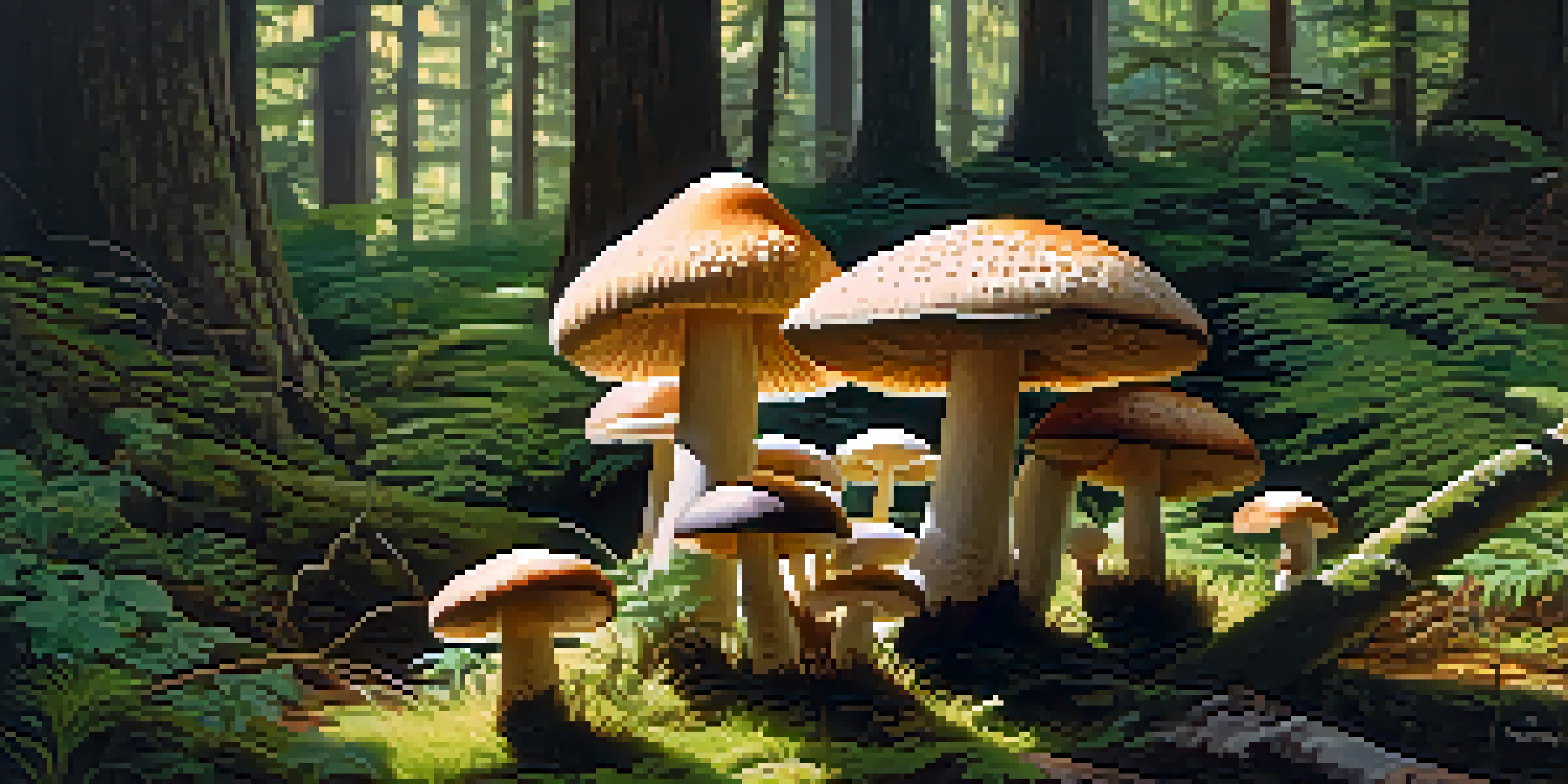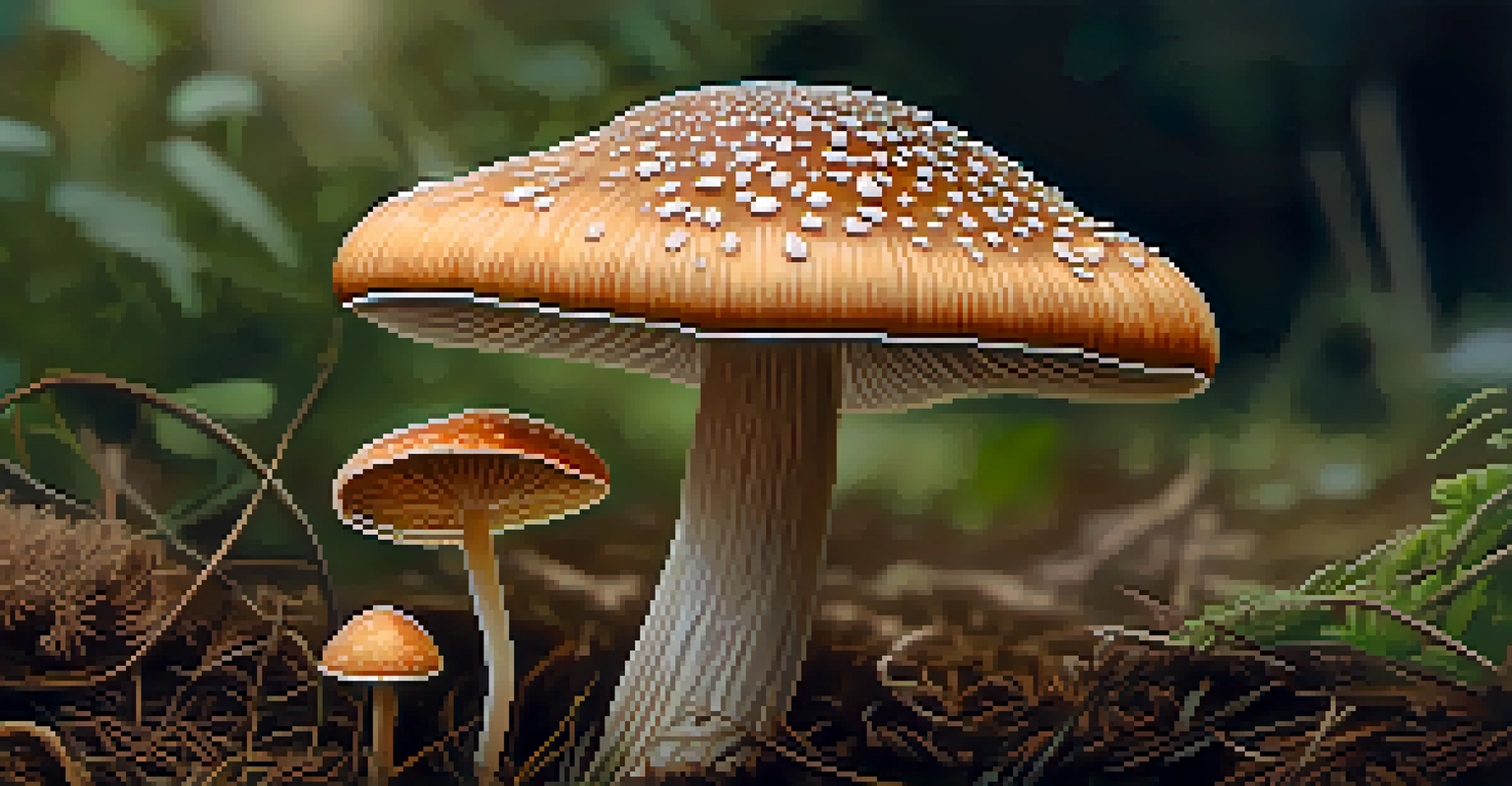Entheogens: Revolutionizing Modern Therapeutic Practices

What Are Entheogens and Their Historical Roots?
Entheogens are substances that induce spiritual or mystical experiences, often derived from plants or fungi. For centuries, various cultures have utilized these compounds in religious and healing ceremonies, ranging from the Amazonian shamans using Ayahuasca to Native American tribes employing Peyote. These practices highlight the historical significance of entheogens as tools for personal transformation and connection with the divine.
Psychedelics can help us to see ourselves and the world more clearly, with less fear, and that is a powerful tool for transformation.
The word 'entheogen' itself comes from the Greek, meaning 'generating the divine within.' This concept underlines the profound potential these substances hold for exploring consciousness and addressing psychological issues. As society becomes more open to alternative therapies, the resurgence of interest in entheogens is not merely a trend but a return to ancient wisdom.
Modern science is beginning to validate these ancient practices, as research on entheogens reveals their potential benefits. With clinical trials and studies emerging, it's clear that these substances may hold the key to unlocking new therapeutic avenues for mental health.
The Science Behind Entheogenic Therapy
Research into entheogens has unveiled fascinating insights into how they interact with the brain. Substances like psilocybin and LSD have been shown to promote neuroplasticity, which is the brain's ability to reorganize itself by forming new neural connections. This property can be particularly beneficial in treating conditions such as depression and PTSD, where traditional therapies may fall short.

In clinical settings, these substances are often administered in conjunction with psychotherapy. This combination can create a safe space for patients to confront deep-seated fears, traumas, or emotions that they may have avoided. The experience can be therapeutic, leading to breakthroughs that facilitate healing and personal growth.
Entheogens Aid Mental Health Treatment
Entheogens like psilocybin and Ayahuasca show promise in treating conditions such as depression and PTSD by promoting healing and personal transformation.
Moreover, studies have shown that the effects of entheogens can last long after the experience itself, providing lasting benefits that conventional medications may not offer. Patients often report increased feelings of connection, empathy, and reduced anxiety, demonstrating the potential of entheogens to revolutionize mental health treatment.
Current Research and Promising Findings
The current landscape of research surrounding entheogens is incredibly promising. Institutions like Johns Hopkins University and Imperial College London have conducted numerous studies exploring the efficacy of substances like psilocybin for treating depression and anxiety. These studies consistently show significant improvements in patients' mental health, often after just a few sessions.
The experience of interconnectedness through psychedelics can lead to a profound sense of personal insight and healing.
One particularly notable study found that psilocybin treatment led to a 71% reduction in depression symptoms among participants after just one week. This kind of data is not only compelling but also challenges the traditional approaches to mental health care that often rely on long-term medication regimens.
As more research emerges, the hope is to establish a clearer framework for integrating entheogenic therapy into mainstream healthcare. This could lead to new protocols and guidelines, ensuring that patients receive safe and effective treatment tailored to their needs.
Therapeutic Applications of Popular Entheogens
Different entheogens have unique therapeutic applications, each offering distinct benefits. For instance, psilocybin is often explored for its efficacy in treating depression and anxiety, while MDMA has shown promise in helping individuals process trauma. Understanding these applications can guide therapists in choosing the best substance for their patients’ specific needs.
Another substance gaining attention is Ayahuasca, traditionally used in South American spiritual practices. Recent studies suggest it may help with addiction treatment and foster emotional healing. Its combination of DMT and an MAOI creates a profound experience that many users describe as life-changing.
Research Validates Ancient Practices
Modern studies confirm the therapeutic benefits of entheogens, paving the way for their integration into mainstream mental health care.
By recognizing the range of therapeutic uses for various entheogens, practitioners can better tailor therapy sessions to maximize benefits. This personalized approach can lead to more effective treatment outcomes for individuals suffering from various mental health challenges.
Legal and Ethical Considerations in Entheogen Use
While the therapeutic potential of entheogens is exciting, there are significant legal and ethical considerations to address. Many entheogenic substances remain classified as illegal drugs in various countries, creating barriers to research and clinical use. Advocates argue for regulatory changes to facilitate access to these potentially life-saving therapies.
Ethical considerations also arise when using entheogens in therapy. It's crucial for practitioners to ensure that they create a safe, supportive environment for their clients. Informed consent and thorough screening processes are essential to prevent any adverse effects, especially in vulnerable populations.
As the conversation around entheogens evolves, it’s important for both researchers and practitioners to engage with these legal and ethical frameworks. This will foster a responsible approach to integrating entheogens into therapeutic practices, ensuring that the potential benefits can be realized without compromising safety.
Personal Stories: Transformative Experiences with Entheogens
Personal accounts of individuals who have undergone entheogenic therapy often reveal profound transformations. Many describe their experiences as eye-opening, providing insights into their lives that they had never encountered before. These narratives highlight the potential for healing and self-discovery that entheogens can facilitate.
For instance, a participant in a psilocybin study reported experiencing a deep sense of interconnectedness with others, leading to improved relationships and overall well-being. Such stories underscore the emotional and psychological benefits that can arise from these experiences, making them relatable and inspiring.
Ethical Use in Therapy is Crucial
Addressing legal and ethical concerns is essential to ensure safe and supportive environments for patients undergoing entheogenic therapy.
These testimonials serve not only as encouragement for those considering entheogenic therapy but also as a reminder of the human capacity for healing. When shared, these stories can help destigmatize the use of entheogens and promote a broader acceptance of their therapeutic potential.
The Future of Entheogens in Mental Health Treatment
Looking ahead, the future of entheogens in mental health treatment appears bright. With ongoing research and increasing public interest, we may soon see these substances integrated into standard therapeutic practices. This could represent a significant shift in how we approach mental health care, moving toward more holistic and effective solutions.
As more healthcare professionals become educated about the benefits of entheogens, the potential for collaboration between traditional and alternative therapies grows. This integration can lead to more comprehensive treatment plans that address the root causes of mental health issues rather than just the symptoms.

Ultimately, the promise of entheogens in revolutionizing therapeutic practices lies in their ability to facilitate deep healing and personal transformation. As we continue to explore their potential, we stand on the cusp of a new era in mental health care that prioritizes understanding and empathy.